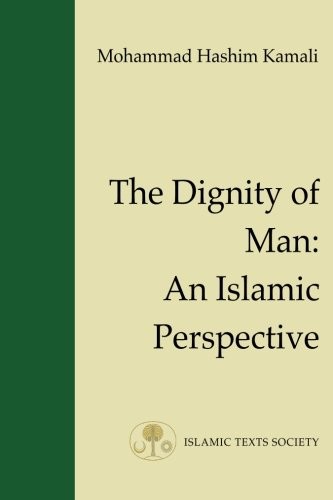Dignity & Rights: An Islamic Perspective
In seeking to democratize thinking about ethics, recent posts have covered Islamic perspectives on justice and equity, this book covers the Islamic perspective of dignity, from the book "The Dignity of Man: An Islamic Perspective" (1999) by Mohammed Hashim Kamali. A few notes:
"Islam's perception of human rights is not premised on the individual verses nation-state framework. The nation-state itself represents a superimposition which has little claim to authenticity in the authoritative sources of Islam, namely the Qur'an and Sunnah. The Qur'an and Sunnah lend support to the creation of a political order and leadership that takes charge of community affairs and administers justice. But the main actor and audience in all this is the individual, not the state." (p. xii)
"World cultures and traditions tend to differ not only in the value-content of human rights but in regard to many other variables that influence the place and priority that is given to those rights. The western tradition posits freedom in order mainly to avoid the outcome of a despotic of government, while Islam emphases virtue as a goal for both the individual and society. The west emphases individual rights and interests, while Islam gives priority to collective good in the event which the latter conflicts with the interest of the individual." (p. xv)
"Dignity in other words is not earned by meritorious conduct; it is an expression of God's favour and grace. Mustafa al-Sibai and Hasan al-Ili have similarly remarked that dignity is a proven right of every human being regardless of color, race or religion. Ahmad Yusri has drawn the conclusion that 'dignity is established for every human being at the moment of birth'. Sayyid Qutb has similarly stated that dignity is the natural light of every individual. The children of Adam have been honored not only for their personal attributes or status in society, but for the fact that they are human beings." (p. 1-2)
"It is a basic right of all human beings to live a life of dignity, complemented by peace and comfort and the freedom to pursue what brings them happiness and perfection through all lawful means. A Muslim only worships God as his sole creator and sovereign and humbles himself to no one else. The creation and enjoyment of beauty, good health and a clean environment are seen as complementary to the defined lifestyle of Islam." (p. 8)
"Another manifestation of the dignity of man in Islam is its insistence on the essential equality of every member of the human race. All are equal in the eyes of God regardless of race, color and religion. No man has a claim to superiority over another, and there is no recognition in Islam of a class or caste system, a superior race, or a chosen people or any related concept. Man's inherent dignity is sacrosanct and the only ground of superiority is recognized in the Qur'an is God-consciousness [taqwa]" (p. 45)
"Islam's perception of human dignity is predicated on the unity of the origin of mankind, and its basic quality in regard to the essence of humanity, rights and obligations." (p. 102)

